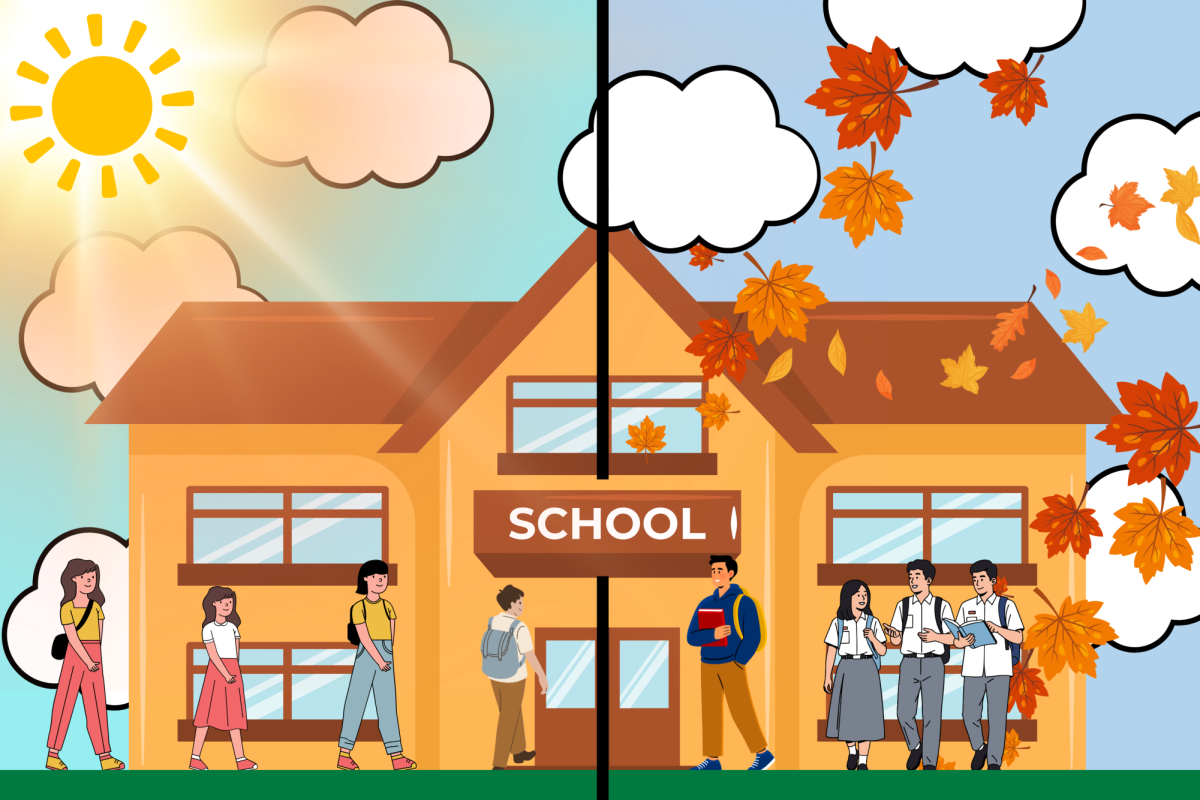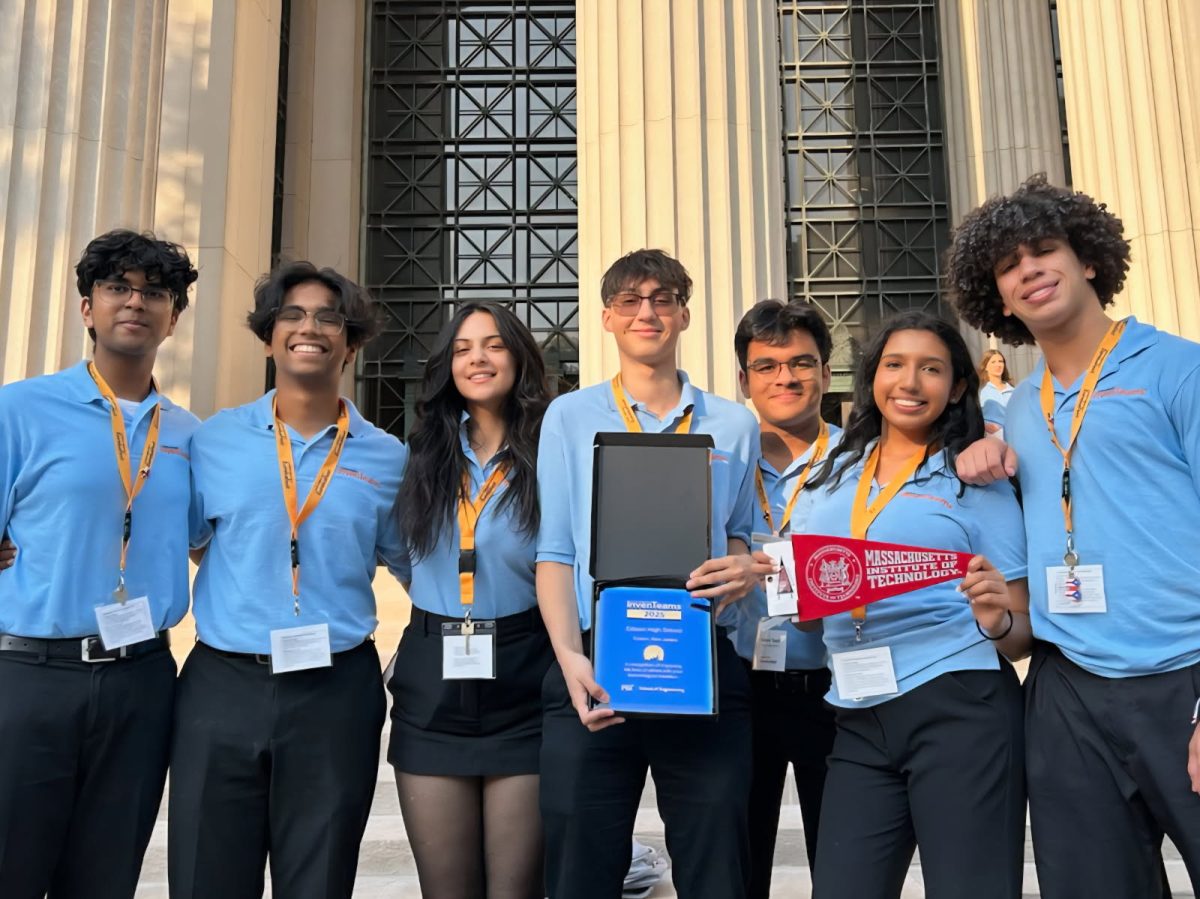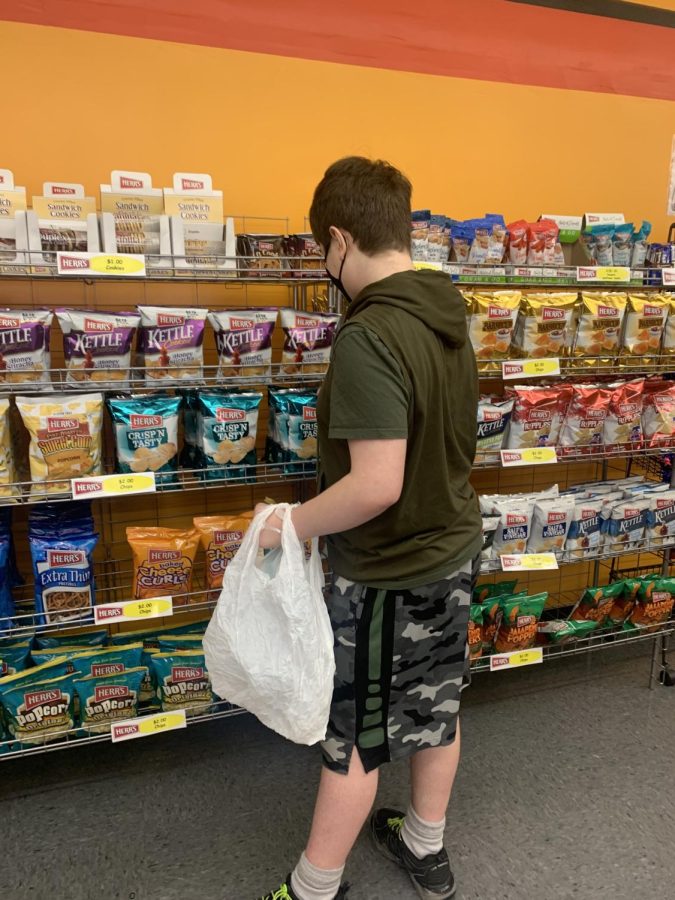Bagging The Plastic Bag
New Law’s Effects on EHS
A student at Shoprite with his own recycled bag
May 19, 2022
At the end of a long day at school, students from Edison High School (EHS) head to ShopRite of Edison for a simple way to unwind and relax. Students purchase items from the store, hang out with their friends, and—from time to time—bag items for club fundraisers. However, due to the new plastic bag mandate, which took effect on May 4, all single-use plastic bags will be banned from large grocery stores, including Edison ShopRite and EHS’ own ShopRite.
EHS’ very own ShopRite program, which has been in existence since 2015, stopped giving out plastic bags earlier than the anticipated mandate.
“We actually stopped giving out bags over a month ago. We realized that we were giving customers bags for just a couple of items, which was such a waste. The kids seem to be just fine with the lack of bags,” said teacher Mrs. Yarida Mendez-Bogash, who runs the program.
“Believe it or not, some students are actually coming in with their own tote bags or reused plastic bags!” she added.
New Jersey has banned single-use plastic bags in most areas, as well as paper grocery bags in larger grocery stores. The strictest in the nation when it comes to single-use plastic, the law will be incorporated eighteen months after the bill was announced in November 2020, effectively limiting the types of bags that grocery and non-grocery stores alike can provide for their customers.
Non-grocery and retail stores can still provide disposable paper bags, but larger grocery stores like Stop & Shop, Trader Joe’s, and ShopRite cannot. Customers will be forced to bring with them reusable grocery bags, or purchase one from the store itself, which can be a huge inconvenience and an additional cost to many students who purchase items after school. Additionally, many large organizations at EHS use bagging items at ShopRite of Edison as a way to raise money for dues, trips, and events.
“We only went to bag for one day, and we raised $524.55 for the whole team,” said Ethan Lin ‘25, a member of the boy’s varsity golf team.
“When I did bagging at ShopRite for band, there were many who donated their change and also alumni or parents of musicians who gave money,” said Sylvia Wu ‘25, who used ShopRite bagging as a way to raise money for the Virginia spring music trip.
“I did my freshman year like once or twice, I think. It’s definitely better than selling one case of that [chocolate], though, if you do like two days of bagging,” said Shaun Bali ‘23.
Without a convenient way to raise money, many clubs and organizations may struggle to support themselves, since bagging events as fundraisers for sports and clubs cannot occur without the use of disposable bags.
“Fundraising through bagging is also way more efficient than, for example, two other ways of fundraising at our school: selling chocolate bars or candles,” Wu added.
“I very much believe it will impact fundraising for students at this high school. EHS has done ShopRite bagging as a form of fundraising for YEARS and I know the orchestra has (as my sisters have done it) for trips and such. It’s also easy since the store is right there next to our school, so a big source of fundraising that the students use is now gone with this plastic bag ban,” said Araniee Sothilingam ‘25.
However, EHS’ ShopRite program is working to implement new opportunities for fundraising themselves.
“We are actually working to create our own EHS canvas bags to sell in the store. It would be a great option for the customers and a good fundraiser for the workshop,” said Mendez-Bogash.
“I suppose ShopRite could still do the bagging, just with the customers’ own tote bags. That would actually be a big help. Sometimes it takes you longer to bag your items into those tall tote bags,” she added.
Despite a decrease in funding opportunities, many students believe that the new strict ban is a step in the right direction. Tons of plastic bags are used per customer during large shopping trips, with customers using excessive bags while double-bagging or purchasing items like meat products. Implementing a ban can act as an incentive to be more mindful about shopping.
“It might make us realize now how many disposable items, like these bags, that we really do use and how using less of it really won’t affect us more while also helping the environment, which is much needed,” Sothilingam added.
Nevertheless, students believe that the plastic bag mandate is a step in the right direction. By implementing stricter laws, students may view the environment as a greater priority.
“Students are uncultivated and don’t pay enough attention to the environment because it is not their priority. We’ll look at it differently because we’ll realize how we don’t appreciate the environment enough and we harm the environment,” said Yingwei Lin ‘25.
























































































